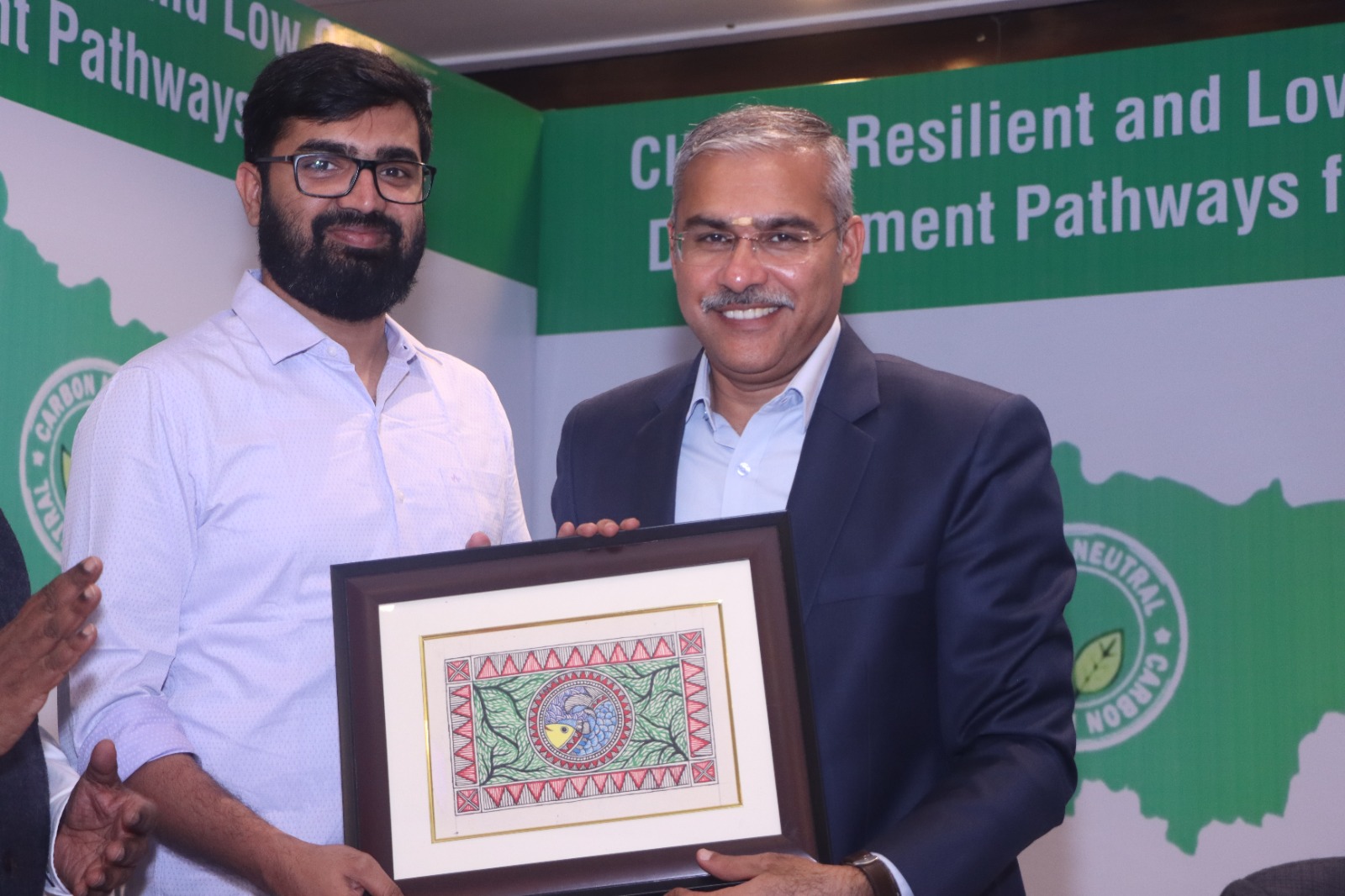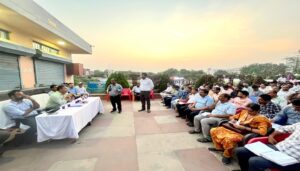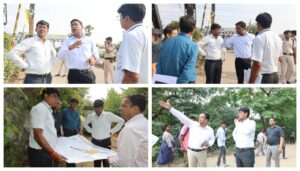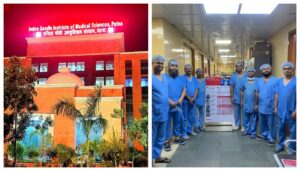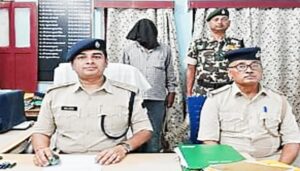Bihar’s Environmental Leadership: Minister Unveils Groundbreaking Low-Carbon Strategies for Sugar and Re-Rolling Mills
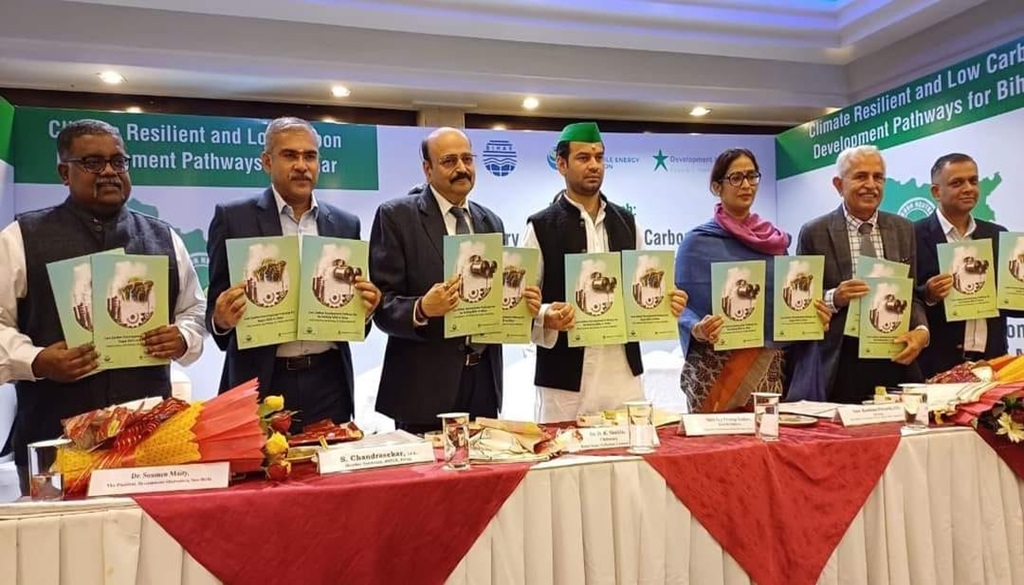
Patna: In a collaborative effort spearheaded by the Bihar State Pollution Control Board (BSPCB), alongside Development Alternatives (DA) and Shakti Sustainable Energy Foundation (SSEF), the Bihar Minister of Environment, Forest, and Climate Change released two pivotal reports. These reports, titled “Low Carbon Pathway for Sugar Mills in Bihar” and “Low Carbon Pathway for Re-Rolling Mills in Bihar,” are part of the BSPCB’s overarching project, ‘Climate Resilient and Low Carbon Development Pathway for Bihar.’
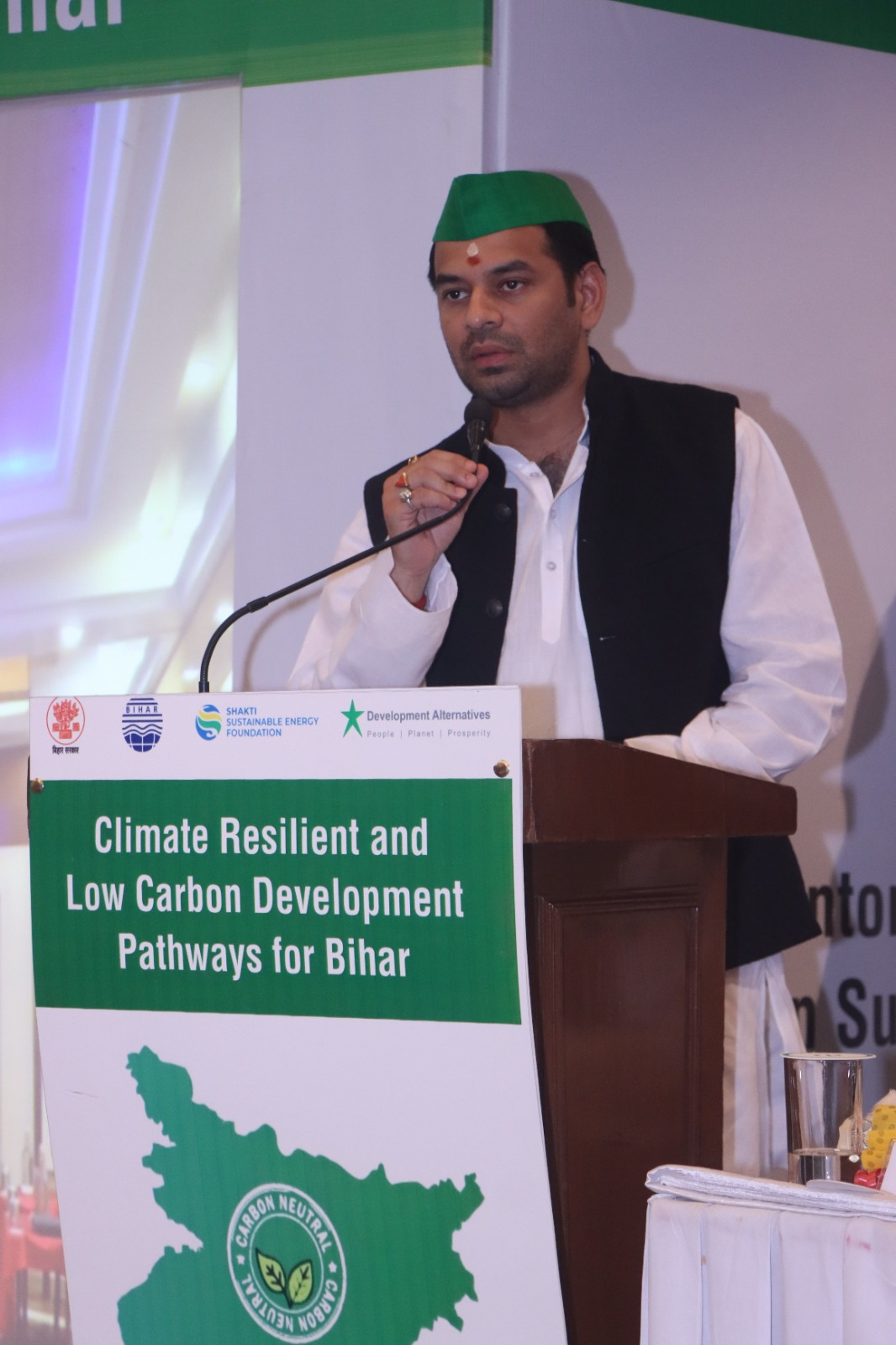
Addressing a gathering in Patna, Minister Tej Pratap addressed pressing concerns confronting Bihar, notably floods and droughts, attributing them to the impact of climate change. He implored the youth to unite in their commitment to forge a more sustainable future for both the state and the country. The Minister urged citizens to actively participate in this endeavor by advocating for and engaging in environmentally friendly practices, such as tree planting initiatives, using cycles, encouraging organic food and embracing alternatives to fossil fuels in their daily lives.
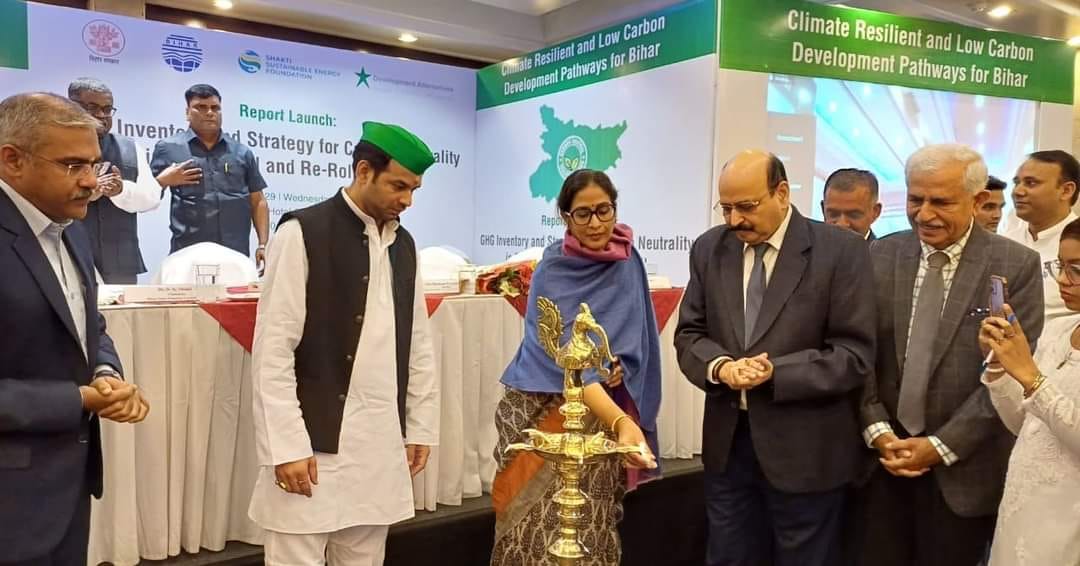
Under the broader ‘Climate Resilient and Low Carbon Development Pathway for Bihar’ project, the BSPCB, in collaboration with DA and SSEF, conducted a comprehensive study. This initiative aims to assess Greenhouse Gas (GHG) emissions and recommend low-carbon development strategies for key industries in Bihar, including the brick sector, calcined pet coke, re-rolling mills, distilleries, rice mills, cement industries and the sugar sector. The released reports specifically focus on the re-rolling mills and sugar mills sectors after a thorough review and research under this initiative.
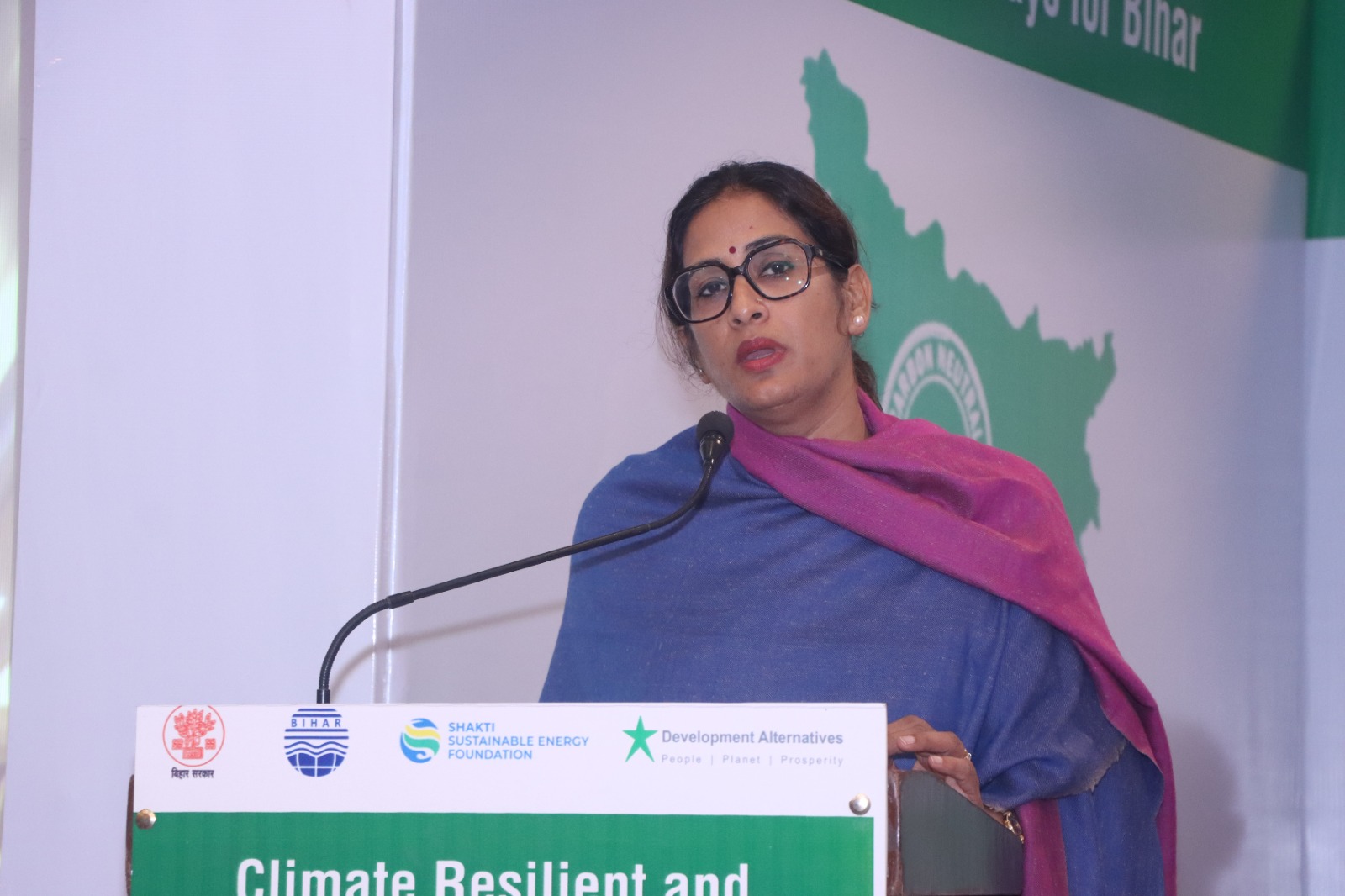
Bandana Preyashi, Secretary, Department of Environment, Forest, and Climate Change, Bihar expressed gratitude to the team (BSPCB, DA and SSEF) for undertaking this crucial study. She emphasized the imperative of assessing GHGs from various sectors for long-term planning towards achieving Net Zero. The Secretary underscored the necessity for the holistic development of these sectors, advocating for sound policies, innovative technologies, and financial support for industries, all the while concurrently enhancing the capacity of the workforce.
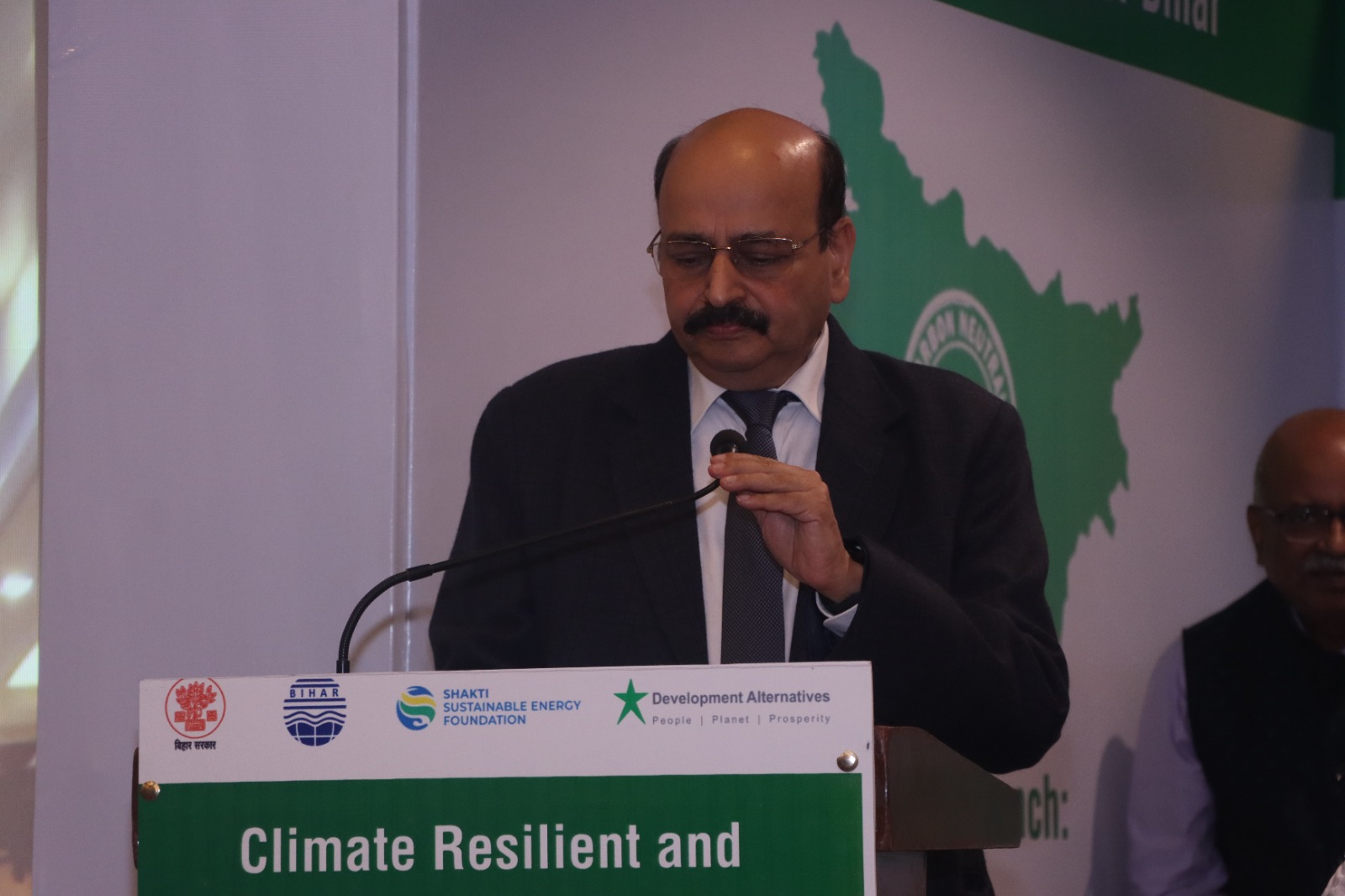
Dr. D.K. Shukla, Chairman, BSPCB, delivered a keynote address applauding the collaborative efforts of partner organizations — DA, and SSEF— for their focus on GHG emissions from the state’s industrial sector. Dr. Shukla highlighted the significance of assessing Scope I, Scope II, and Scope III emissions in these sectors to formulate targeted strategies for mitigation. Additionally, he addressed issues related to soil degradation and water pollution in the State.
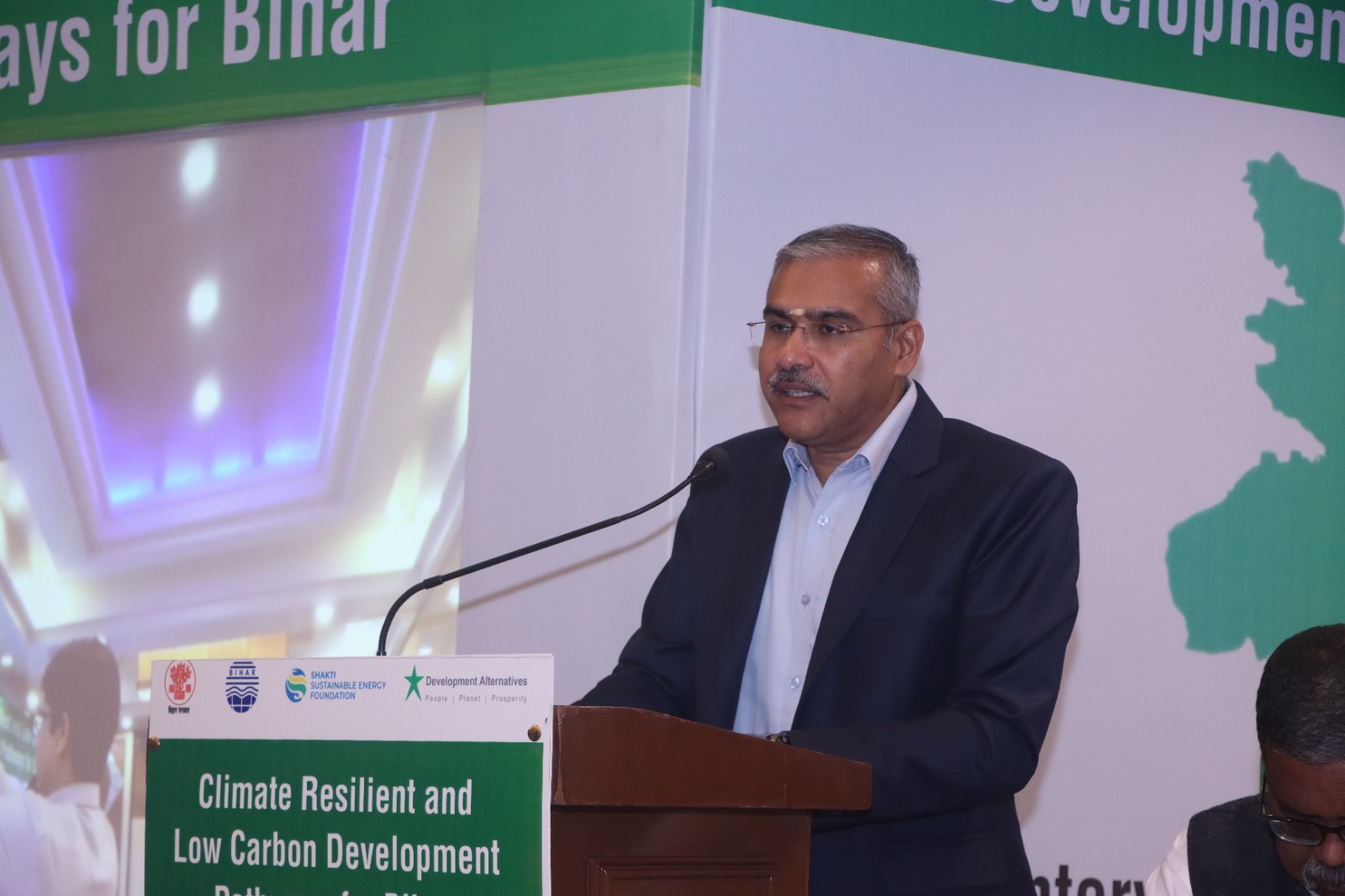
In his welcoming address, S. Chandrasekar, Member Secretary, BSPCB, introduced the initiative and underscored the ongoing collaborative efforts of DA, and SSEF in Bihar. He positioned this initiative as a pivotal, long-term solution to achieve net-zero emissions. The BSPCB’s member secretary also emphasized the ongoing endeavors in greening Bihar’s clay brick sector and the promotion of the fly ash brick sector.

Dr. Arun Kumar, Emeritus President of DA, provided insights to the participants, elucidating the necessity and significance of such a comprehensive study. He underscored the critical role of a GHG inventory in formulating effective strategies for attaining carbon neutrality. Dr Kumar pointed out the near carbon-neutral status of the sugar mills in the state and suggested potential pathways for the sector to achieve carbon neutrality. These included enhancing efficiency while increasing production, augmenting ethanol production, and implementing methane recovery from spent wash/press mud.
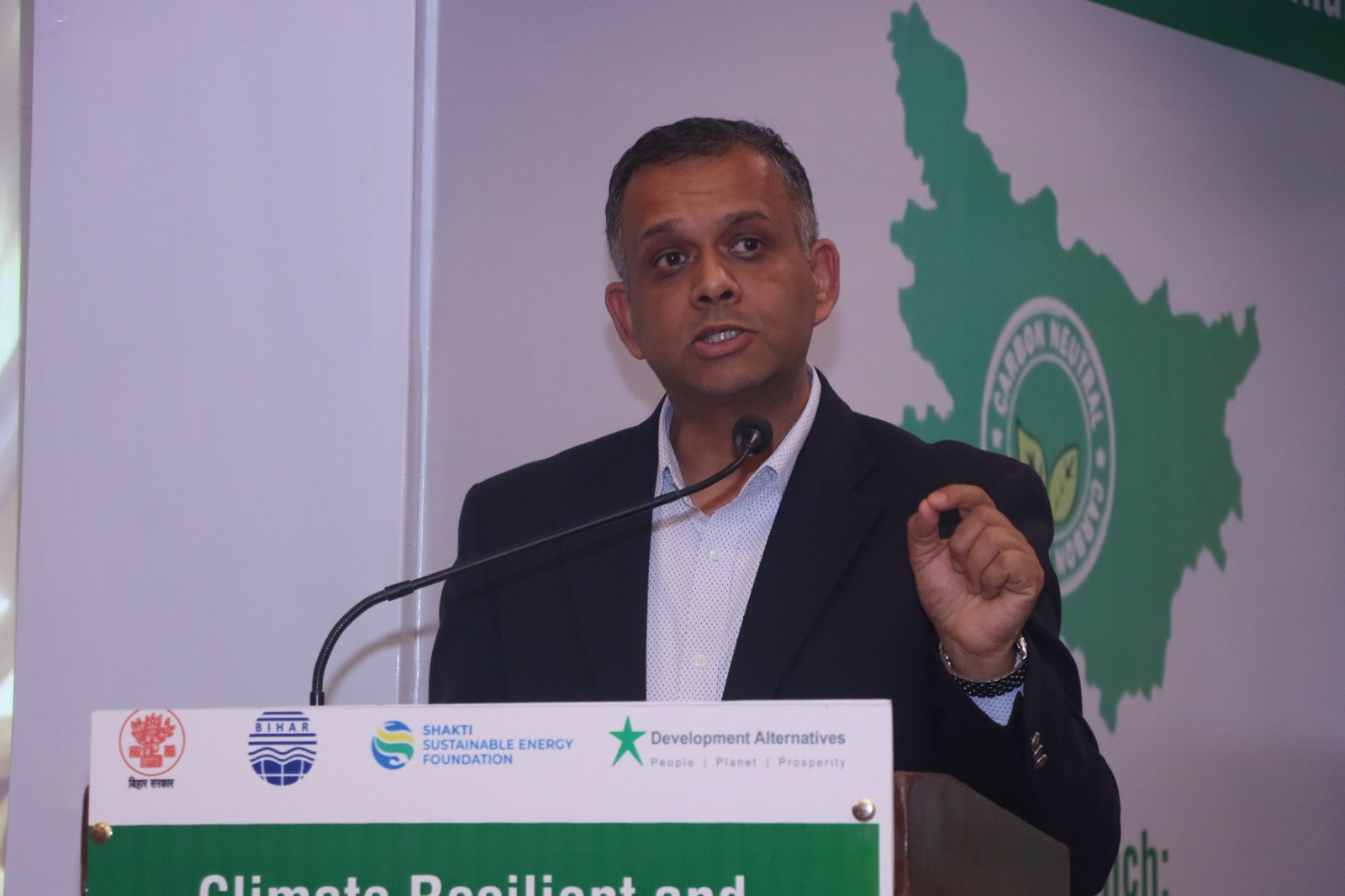
In his address, Dr. Sachin Kumar, Director of Shakti Sustainable Energy Foundation, underscored the imperative of curbing carbon emissions across diverse sectors while emphasizing the importance of capacity building for both workers and industry owners. He expressed gratitude to BSPCB for its persistent efforts toward fostering a greener economy and recognized Bihar as a trailblazer among states for undertaking robust initiatives to assess and mitigate carbon emissions.
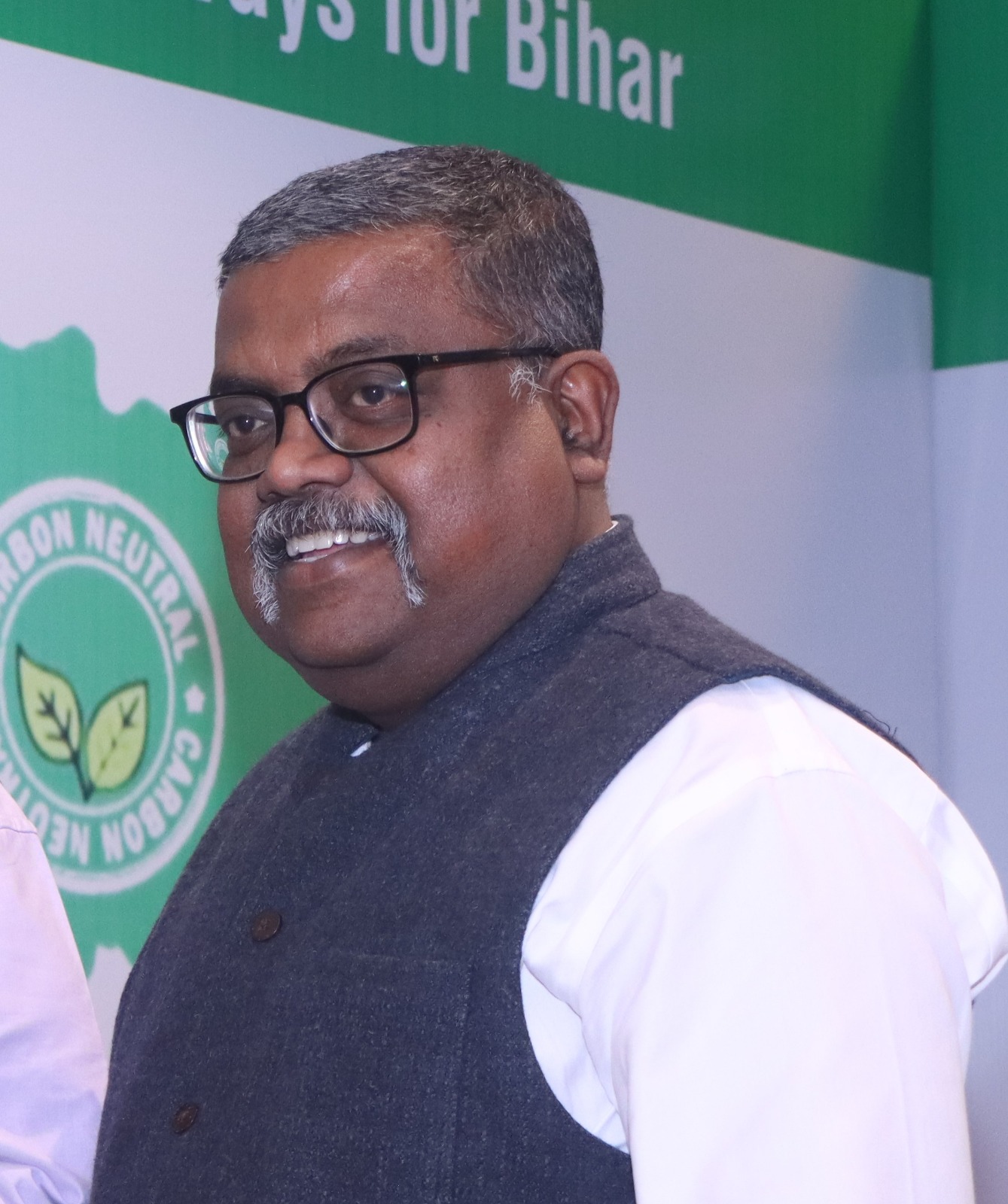
Dr. Soumen Maity, Vice President of Development Alternatives, delivered a presentation sharing the outcomes of the study and the report’s findings. The Greenhouse Gas (GHG) emissions inventory for Bihar’s sugar industry indicated an annual release of 57,021.3 tons of CO2e. Notably, sugar mills were found to contribute surplus green electricity to the local grid, resulting in a net GHG emissions of 12,500 tons of CO2e per annum. Additionally, the study estimated the total annual GHG emissions from operational re-rolling mills in Bihar at 3,81,440 tons of CO2e as of the 2021-22 period.
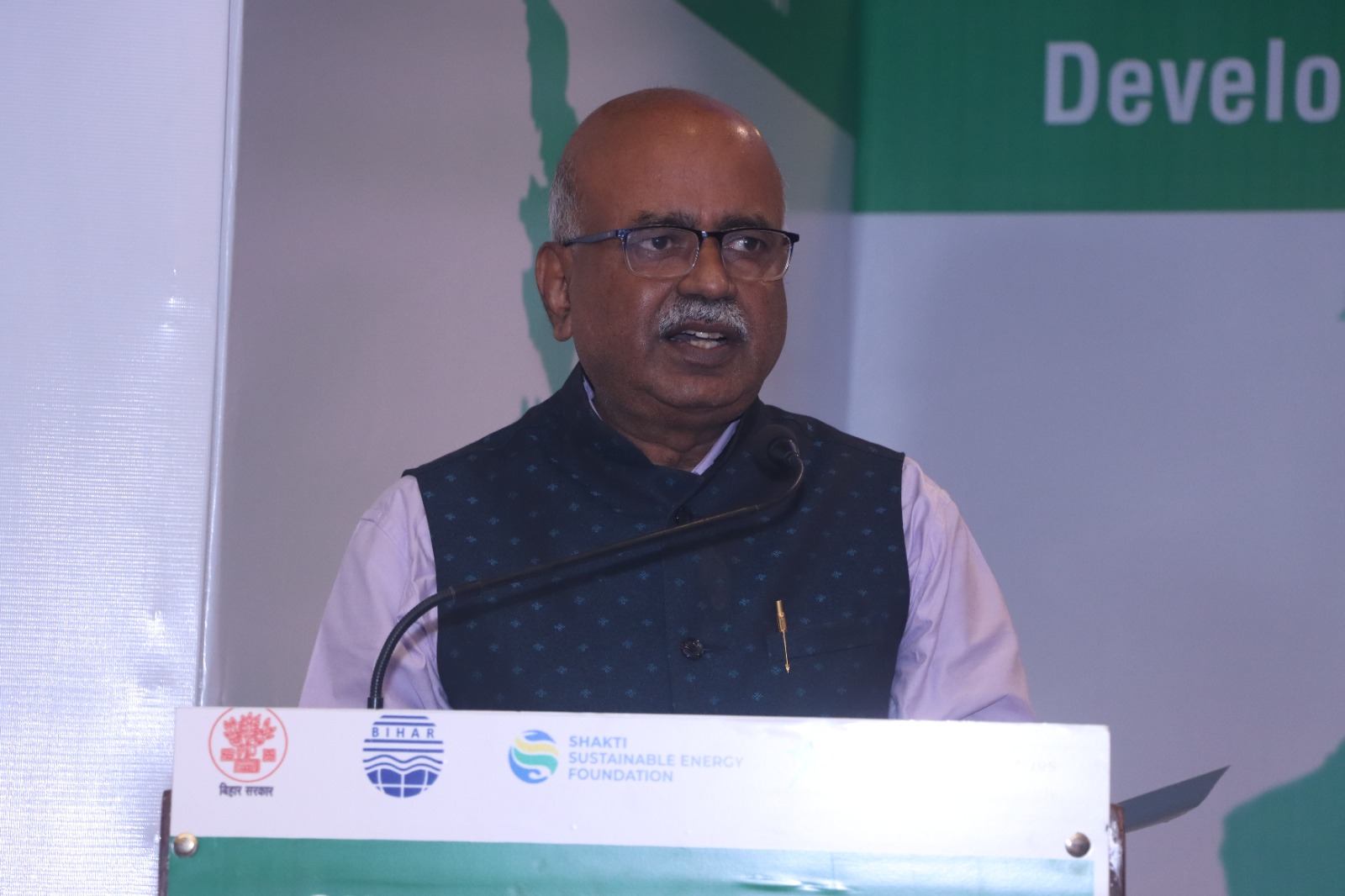
Dr. Naveen Kumar extended his appreciation to the distinguished guests, partner organizations, and representatives from various departments and industries for their active participation in the event. He specifically acknowledged the significant contributions of DA and SSEF, emphasizing their crucial role in the successful execution of the initiative. Dr. Kumar concluded the program by affirming that it is through unified efforts and sustained collaboration that meaningful progress can be achieved in mitigating the impact of climate change and fostering a sustainable future for Bihar.
